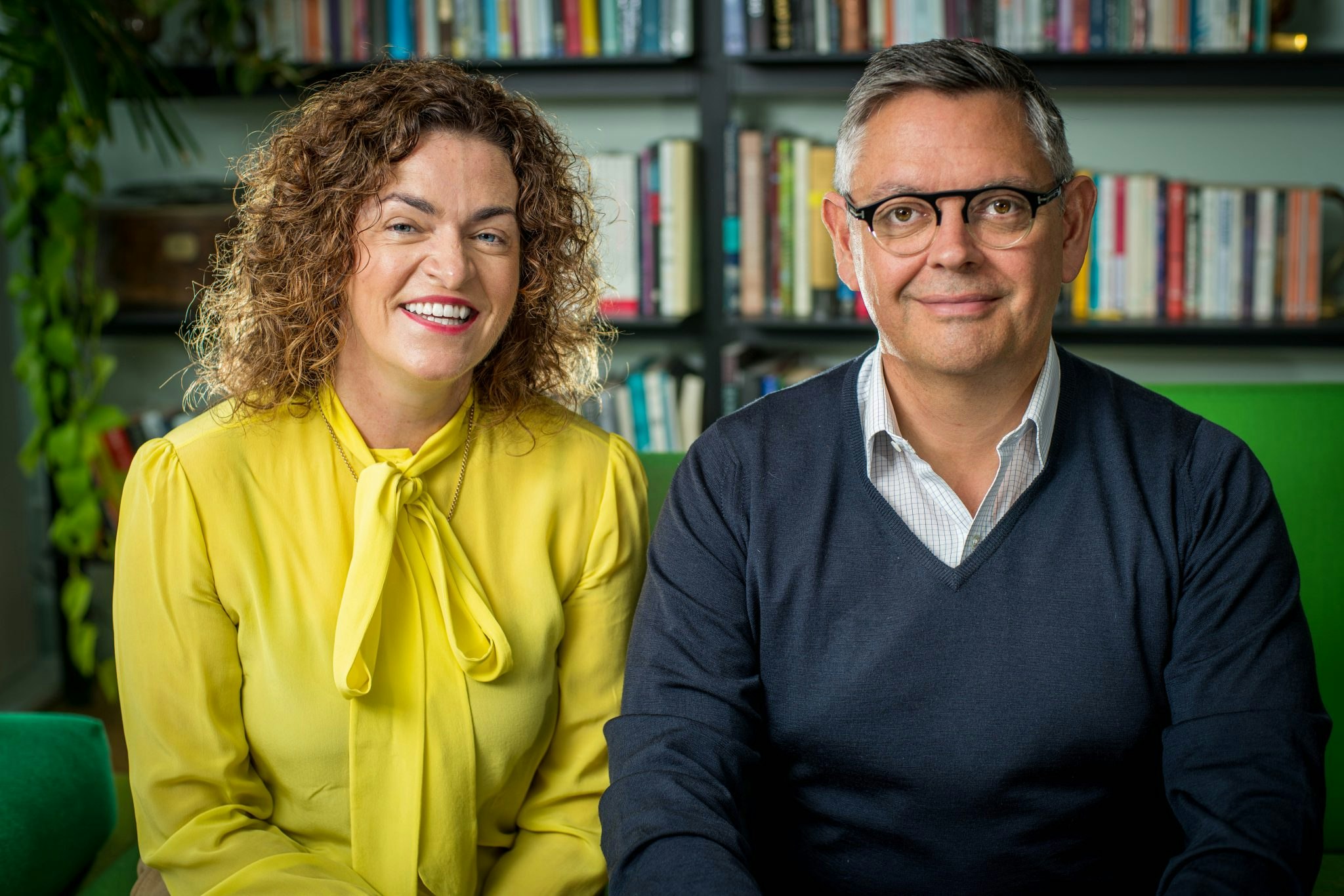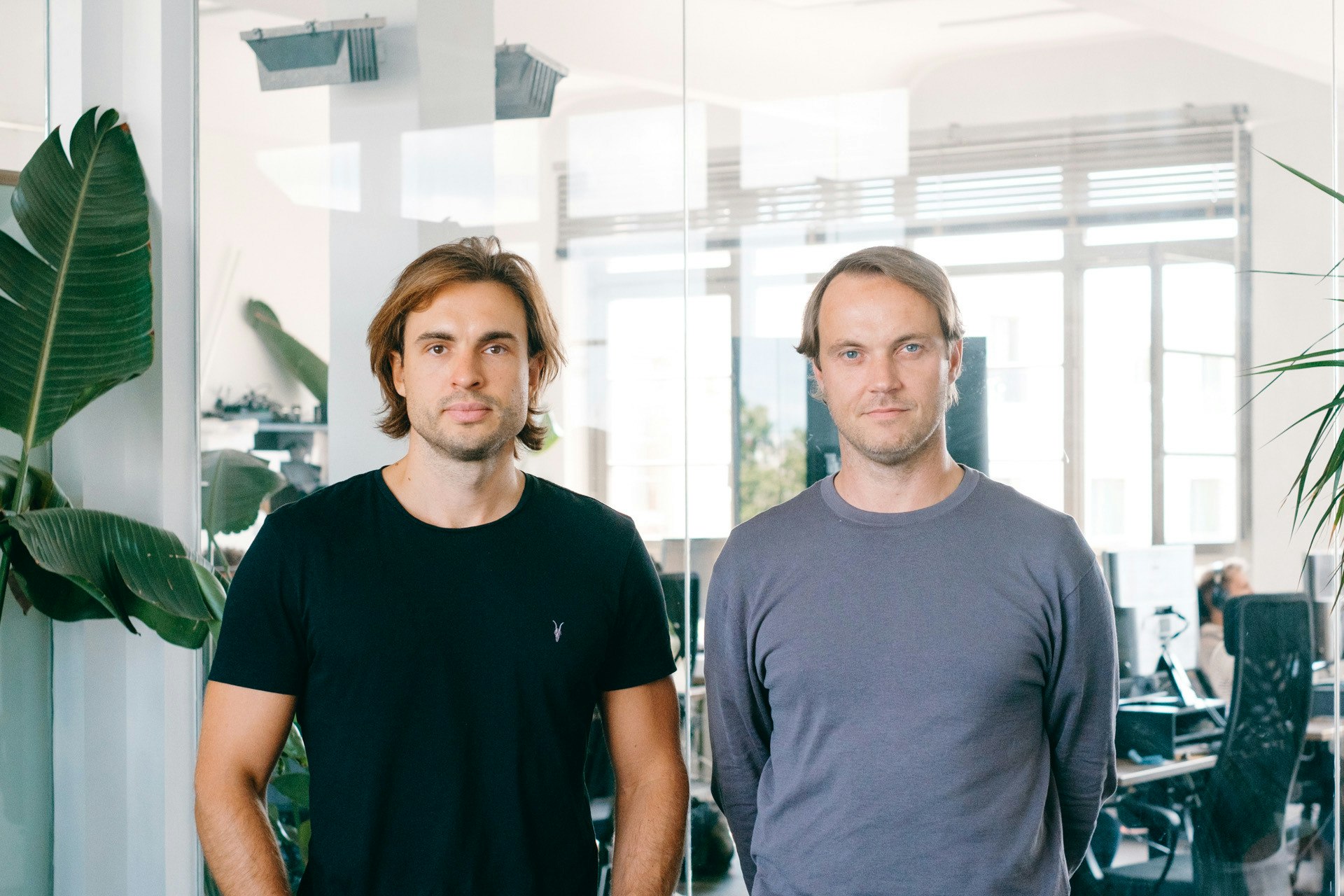Millionaire entrepreneur brothers Fabian and Ferry Heilemann have been through something of a green awakening.
“A few years ago, we had this realisation that we’re really in trouble, and the tech ecosystem has not understood it yet,” says Fabian.
They began with non-profit investments and then pivoted their family office, now called Pirate Impact, to focus solely on impact investing.
And today, they’re announcing that Pirate Impact is evolving into an evergreen impact tech fund with €100m to invest in companies solving the climate crisis and advancing social equality. By 2026, they’re aiming to bring that fund size up to €500m.
It’s far from the only impact or climate tech fund out there — and it’s certainly not the biggest, yet — but its evergreen structure sets it apart. It means the fund can support climate bets all the way from seed to IPO and beyond, which is especially important given that many climate innovations will likely take years if not decades to fully develop and deploy.
“That’s our USP — if your company is developing well, we’ll be with you for 15, 20 years,” says Fabian. Most standard funds will have to return money to their investors, the LPs, earlier than that.
The brothers have built several businesses between them; most recently Ferry was cofounder and CEO of Berlin-based logistics unicorn Forto, while Fabian was a partner at German VC Earlybird.
Cheque sizes and areas of interest
The fund will be called AENU, because, Sifted’s told, it wants to usher in “a new era of impact venture capital”. It will invest at all stages, with first cheques ranging from €500k to €5m in startups based in the EU and the US. It will aim to do eight-ten new investments a year.
The team are particularly interested in five broad areas:
- Energy (energy production, storage, distribution);
- Carbon removal (carbon capture, carbon sequestration, carbon recycling);
- Food (alternative proteins, fermentation, plant-based and cell-based food);
- Enterprise (enabling software like carbon accounting; mobility; materials);
- Education and empowerment.
In Europe, the portfolio already includes vertical farming startup Infarm and Danish VR education startup Labster.
That’s our USP — if your company is developing well, we’ll be with you for 15, 20 years
The team are looking for technologies that have the potential to avoid or remove 100m metric tonnes of CO2 emissions, at scale, or significantly improve the quality of life of millions of people.
At the moment, alt protein startups are top priority for Melina Sánchez, principal and VP of impact, as they are the “biggest lever to reduce emissions in the food sector”. She wants to see “companies that can really make meat lovers fall in love with alternatives — we want to increase the number of flexitarians out there”.
Heilemann is keen on seeing more alternative biofuels for trucking, shipping and aviation and cost-competitive carbon removal technology.
Environmental assessments
They’re also tracking the impact the portfolio has on increasing biodiversity and improving water usage.
They’ll assess that, says Sánchez, via sector research, and projections based on a startup’s operational data. Sometimes the team will also use lifecycle assessments, either proxies or those carried out by startups — although they’re not so applicable to software businesses.
Some startups that might seem pretty "green" to others won’t fit the AENU thesis. “We’ll exclude any startups in the animal value chain,” says Sánchez; for example businesses that help reduce the methane produced by dairy cows.
Other startups that AENU is unlikely to back include micromobility operators. “That’s one area that’s very hot from an investment perspective, in climate, where the impact is not as high as some other areas which remain underinvested in,” she adds.
The evergreen structure
So far, AENU’s funds have been raised from (an especially wealthy set of) “family and friends”, including Tier founder Lawrence Leuschner, Skype founder Niklas Zennström and several German family offices. The Heilemann brothers have also committed a “substantial part of their net worth” to the fund. In autumn, the team plans to approach institutional investors to raise more capital, and hold two to four closings per year from then onwards.
“The proof’s still out,” says Fabian, on whether they’ll like the evergreen model — although he says he’s spoken to partners at some of Europe’s largest funds and at some of the more “sophisticated” family offices about the plan and they haven’t laughed him off.
We want to drive systemic change, turn this into a large operation and make a meaningful contribution
“The evergreen structure brings a lot of benefits to LPs of a fund — just look at Sequoia’s move [the US VC switched to an evergreen fund structure last year]. There’s a lot of value still to be captured in the three, five, eight years post-IPO.”
He doesn’t expect the VC scene to switch to properly paying attention to the triple bottom line overnight, but he’s confident it will happen. “Somebody has to take the first step.”
The team
The Heilemann brothers have hired two others to the investment team so far: Sánchez and Siobhan Brewster, another partner, who was formerly a partner at fellow Berlin-based firm Amplifier. They expect to add two more partners by the end of the year.
They’re also building out a network of scientific experts to advise the portfolio — especially the 20-30% of their investments that tick the deeptech box. They’re big brains in themes like wind energy, solar and energy storage, and include names like Professor Dr Ottmar Edenhofer, the director of the Potsdam Institute for Climate Impact Research, and Dr Beate Heraeus, an economist. Advisers aren’t paid and don’t get carry; instead they get access to AENU’s network and the chance to angel invest alongside the fund.
And Sánchez is growing the impact team. AENU is currently hiring an impact associate to carry out in-house lifecycle analysis, and they’ll likely be joined by another researcher by the end of the year.
“We want to drive systemic change, turn this into a large operation and make a meaningful contribution here,” says Fabian. Now he just needs to see if the institutional investors bite.


